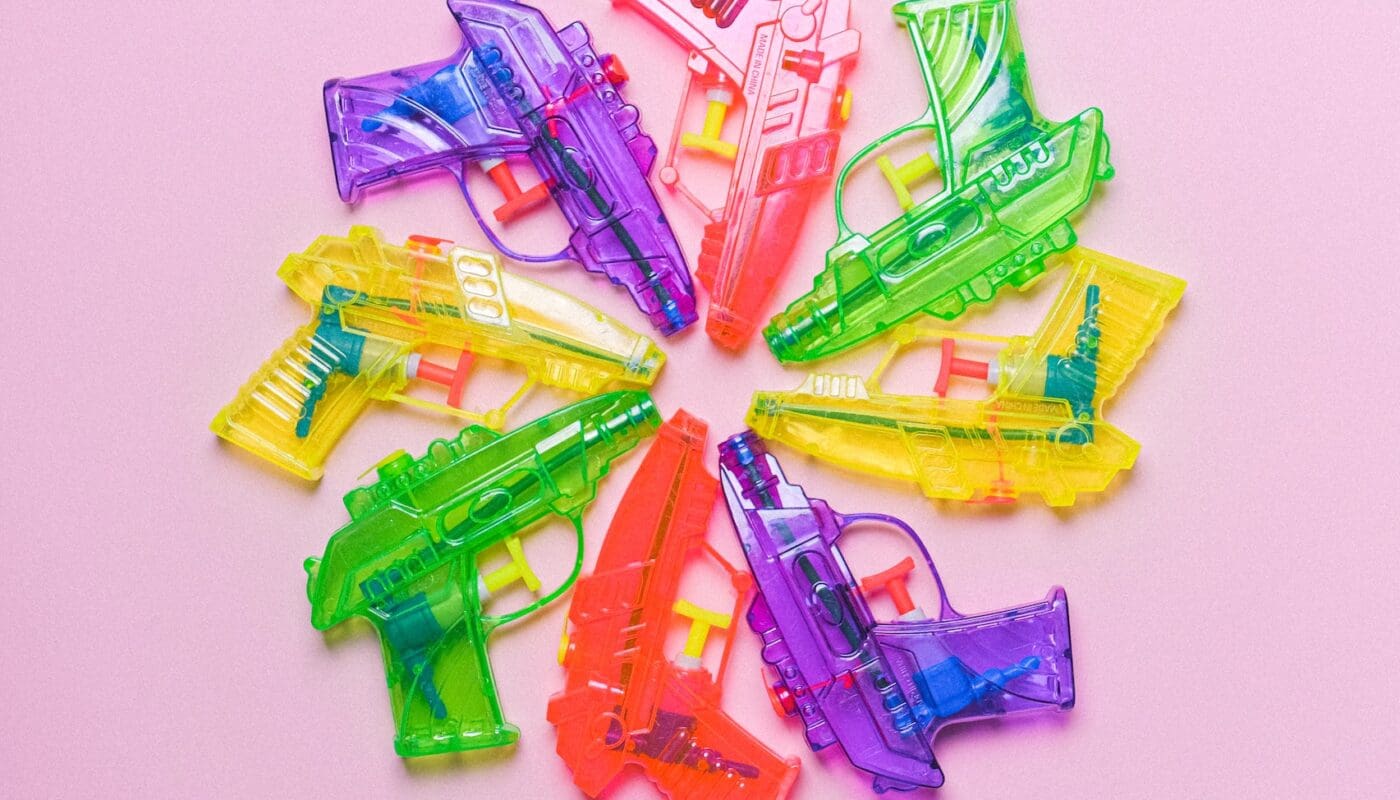Content Warning: euthanasia
The half dozen notches on the six-shooter’s handle were an unnecessary frill. “It’s been over a year since I fired a 19th century weapon,” I said to my boss. “I’m entitled to some practice time. It’s in the employee handbook.”
“Our reconditioned 3D printer just made that gun,” said my boss, never averting her eyes from an extra-large iPhone. “Technically it’s not a 19th century weapon. You’ll be fine.” Her voice was raspy. I suspected she was a secret smoker.
I gripped the pistol from the edge of the uncluttered glass desk. It felt almost right.
“It’s an upgraded duplicate Colt Frontier Six-Shooter,” my boss said. She was young, confident, and always wore a black turtleneck. “The genuine ones were used by real cowboys during famous gunfights.”
“Like the gunfight at the O.K. Canal?”
She ignored my attempted humor. “You must use this gun during today’s assignment. The gun is loaded, but it won’t accidentally fire because the tech team added a red safety button. It now exceeds government regulations. The authentic guns didn’t have safety buttons because the real cowboys didn’t need them. The bullets, by the way, are almost the real thing.”
“Let me see if I remember all this gun stuff. I just push the red button, aim, and pull…”
“No.” She continued to scrutinize her iPhone. “Softly squeeze the trigger. There will be less of a chance of gun drift.”
“Did you just get those instructions from Google?’
“Close the door on your way out.” She was still immersed in the iPhone.
“Will the gun be loud?”
“Don’t waste time talking to your target. You are behind schedule.”
I saw my boss’s intense stare on the iPhone’s shiny screen.
The door to the target’s condo was unlocked.
“Is this a dream?” said Billy Lancing. “Is this really happening? Do I know you?”
“Good evening.” I set my aluminum briefcase on the stained green carpet. It contained the upgraded almost real Colt Frontier Six-Shooter and three protein bars for my occasional bouts of hypoglycemia. I was not wearing cowboy duds.
Billy looked small and brittle on a leather recliner. He was wrapped in an oversized white terrycloth robe. “How did you get in here? I’d call the police, but I don’t know where my phone is.”
“We have an appointment,” I said. “It’s time.”
“Okay,” said Billy. “I’m waking up. I live most of the time in a fog. It’s the drugs I’m prescribed and the alcohol I prescribe myself.”
An extra-large screen television, suspended from the ceiling, was set on mute.
“That’s me from over fifty years ago,” said Billy. “I was The Man from Nowhere. That was the name of a made-up town in Texas. It could have been set anywhere in the West. Probably anywhere in America. Some people still watch the old shows on video discs. Mostly old dying people like me.”
“I did a little background research on you. I like to know something about my clients.”
“I still remember the lines from the episode that’s playing on the ceiling. I was the Stranger. That’s what the townsfolks called me. I had amnesia. I was trying to find and kill the man who left me for dead. One of the show’s writers, who was usually tripping on LSD, told me that the Stranger was really searching for his true identity. Writers are weird.” Billy laughed or coughed. “The Man from Nowhere shouldn’t have been canceled.”
I was beginning to feel sorry for Billy. It was an unpleasant sensation and not beneficial to the execution of my job. Emotions create uncertainty and uncertainty produces mistakes.
“Could you get me a whiskey?” said Billy. His forgettable wrinkled face glowed. “My knee is acting up. I was once thrown from a horse. I never used a stuntman. There’s an unopened Jack Daniel’s in the kitchen. Remember to pour yourself one.”
When I returned from the kitchen Billy was upright on the lounger. I placed the glasses of JD on a wooden table tray.
“I was arrested for murder,” he said. “Well, almost arrested. That episode destroyed me. I never got over it.”
“I read some old news articles. Your fans turned on you.”
“I became that year’s scapegoat. It’s an American tradition.”
“I saw the photos taken inside your house. Closeups of the exact spot she died.”
“She overdosed.” Billy grasped the glass of whiskey with his trembling hands and took a swig. “She didn’t get the drugs from me.” His jaw became slack, and his lower lip quivered. “I suddenly can’t remember her name. That’s never happened to me before. I think about her every day. She was beautiful.”
Billy’s eyes were rheumy.
“Her name was Lois,” he said. “She was in just one scene with me. Episode 22. ‘A Dozen Demons.’ That’s the episode on the ceiling. I sometimes still get letters that ask me about her. I even get hate mail. I don’t know how they get my address.”
“Can I get you another JD?”
“The scene with Lois turned out to be the show’s last one. She came over to my home that night. There were six of us. It was a barbeque. Nothing too fancy. And then she was dead. Heroin. I became public enemy number one. The network shut down production, but they still ran ‘A Dozen Demons.’ It was the highest rated episode of the series and one of the highest rated TV shows of the year. Everyone wanted to see the girl who would soon be dead.”
Billy drained his second whiskey.
“I should have talked to her parents,” said Billy. “They had to drive all the way from Ohio. I could have paid their airfare. A network lawyer told me that communicating with her mother or father would probably trigger outrageous lawsuits. He told me that I could be looking at serious jail time. I of course listened obediently to the lawyer. I always understood that I was replaceable. I was afraid. I wanted to save my career and my reputation, but they both vanished overnight. I couldn’t face the truth for a long time. I was a coward. There are no two ways about it. I might still be a coward. I need to find out before it’s too late.”
“Are you certain you want to die this way?”
Billy didn’t hesitate. “Thinking about it uses up most of my remaining brain cells. I have a willingness to die, so help me God. But can you wait a few more minutes before you do what has to be done? I’m sure you’re a busy man…”
“I’ve got lots of time.” I paused. “It’s still not too late to consider a virtual reality death.”
“Not that!” He vigorously shook his head. “I want to die with a lead bullet inside my heart.”
“I understand. It’s just some words I’m required to say.”
“And you won’t be distracted?”
“I don’t carry an iPhone.” I opened my briefcase and withdrew the gun.”
Billy’s watery eyes brightened. “A Colt Frontier Six-Shooter. I guess that ugly red button is a safety device.” He laughed.
“The real Colt Frontier Six-Shooters are expensive. There are always budget issues.”
“As long as the bullet does its job.”
“It will.”
Billy extended his right arm. It was steady. His grip was firm, the flesh unexpectedly warm and moist. “Take the safety off.”
I pushed the red button. It clicked.
“Now listen to me. There’s a scene coming up where I confront one of the cowboy demons and say, ‘go ahead and pull the trigger.’ The demon freezes and drops the gun. Maybe he is afraid. Or maybe he is basically a good man. It doesn’t matter. But this time when I say, ‘go ahead and pull the trigger,’ I want you to shoot me right in the heart. You’re the demon. I won’t flinch. You’ll see.”
“I’m ready.”
Billy was squinting at the ceiling. “Okay, the demon is coming. He has already unholstered his gun.” Billy shifted his gaze to me and stared. “Go ahead and pull the trigger.”
The almost real Colt Frontier Six-Shooter was loud. The smell of sulfur filled the air. When the smoke cleared, I looked up. A young woman was smiling or maybe laughing. She was beautiful.
The night air was cool. A gray haze had settled over the parking lot. A lone figure approached me.
“Hello stranger,” he said.
I shook his hand. He was young and tall; his eyes were dark and knowing. His name abruptly entered my mind. “Good evening, Jimmy. It’s been months.”
“Is it bad inside?”
I assumed he worked with the cleanup crew. “It’s not too bad. One bullet. Not much blood spatter.”
“That sounds encouraging.”
He offered me an almost real cigarette. I declined.
“I wouldn’t mind doing what you do,” Jimmy said. He inhaled the artificial tobacco smoke. “Are they hiring?”
“They might be,” I said. “There’s been an uptick in real end of life deaths. Maybe it is just a fad, but it’s not just the old people who are tired of living in a world of nothing but almost real things. People want to stare death in the eye, up close and personal. They want to feel what people have experienced for thousands of years. According to the Supreme Court, death is inseparable from the pursuit of happiness.”
“I heard that. I also heard that the government is going to pay everyone’s exit wish. Nice.”
“Apply directly to Health and Human Services.”
“Thanks.” He took another deep drag from his cigarette. “This is probably none of my business, but have you ever thought about your own exit strategy?”
“I guess I want to die right after an assignment.” I gazed into the darkening sky. Moonlight seeped through the thickening haze. “I know it sounds boring, but I enjoy what I do. I perform a vital service. I’m the last person a client will ever see. They need to trust me. You can’t be judgmental, and you must care. There’s pressure, but I work well under pressure. And no two assignments are ever the same. I even like my boss.”
Jimmy was gone. In his place was a thin trail of artificial tobacco smoke that slowly curled upwards.
I picked up my briefcase. I couldn’t remember where I had parked my car. I withdrew the key fob from my pocket and touched the panic button. There was silence. I calmly assessed my situation. I was standing alone in the middle of a vast parking lot surrounded by a dozen identical mixed-use high-rise steel and glass buildings. I craved a real cigarette. An unfiltered Camel. I missed the Mustang I drove thirty years ago. I never forgot where it was parked. I wanted the universe to feel right.
I again touched the panic button on the key fob. My government issued Ford EV-100 impatiently beeped and flashed its headlights.
There would be at least one more assignment. I ate a protein bar.
Leland Neville lives and writes in upstate New York. He previously worked for a news magazine in Washington, D.C. and taught in both a high school and a prison. Some of his short stories have appeared in Ellery Queen’s Mystery Magazine, Space Squid, The Barcelona Review, Sobotka Literary Magazine, and Liquid Imagination. Non-fiction has appeared in U.S. News & World Report and The New York Review of Science Fiction.




